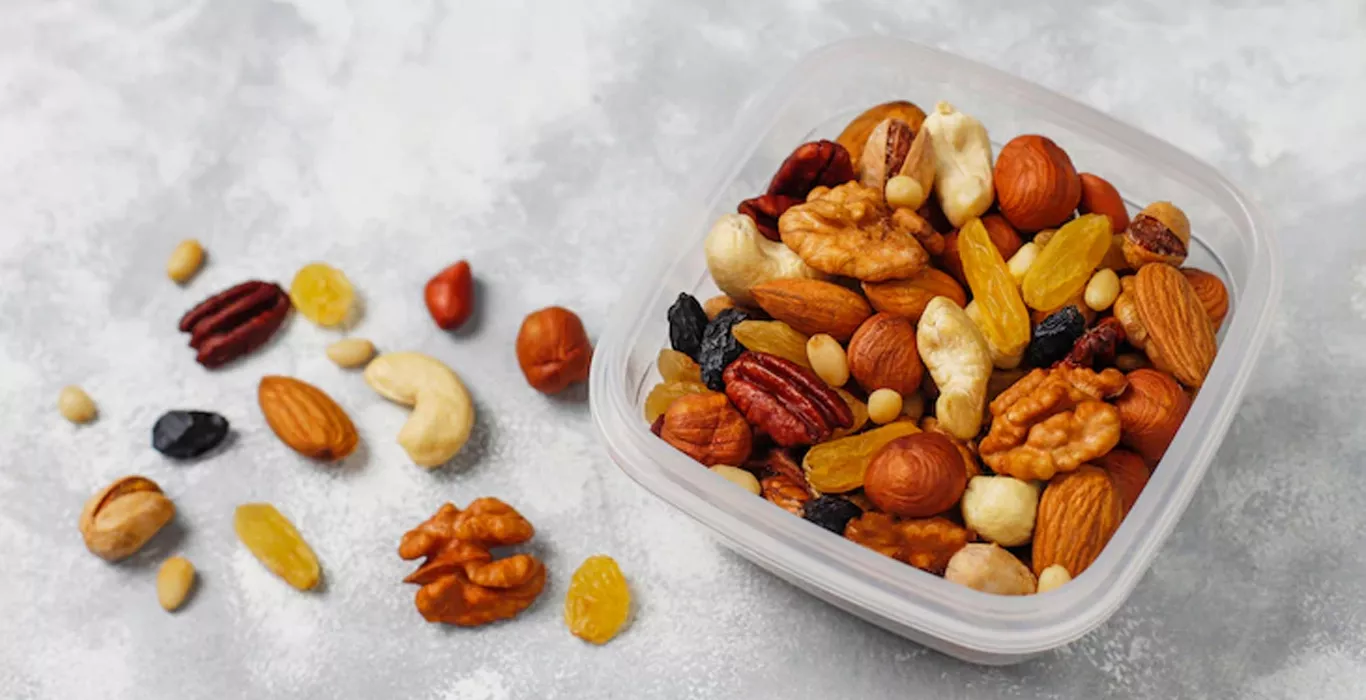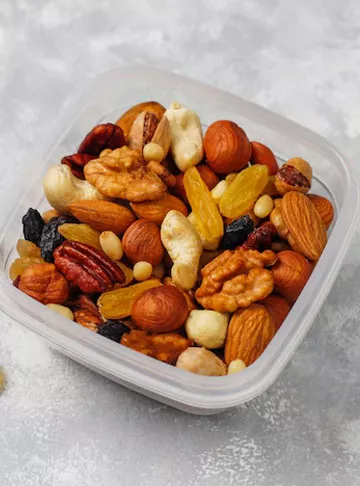Synopsis
Nuts to Increase Sperm Count: Eating almonds, walnuts and hazelnuts can help improve sperm count. Read more to know about the best nuts to increase sperm count here.
Do you want to conceive a child soon? Here’s what to put on your plate to have good quality sperm.
What to eat preferably and which Nuts are good for Sperm count?
Want to boost your fertility to complete your incomplete family? Know which nuts are good for sperm count and which diet plays a major role in your health and in the quality of your sperm. Here are our tips for healthy sperm and how to boost your fertility?
Foods to choose for a Healthy Sperm –
Infertility can be related to your diet. Eating a balanced diet and focusing on the right foods can be a big boost to having good quality sperm.
Omega 3 & Nuts for Healthy Sperm –
To improve the quality of your sperm , choose foods rich in omega-3s such as fatty fish (salmon, herring, sardines, mackerel) as well as certain vegetable oils (walnuts, rapeseed).
Are Walnuts good for sperm & What nuts are good for Sperm Count?
According to an American study, walnuts are excellent for male fertility thanks to their high content of omega-3, antioxidants and minerals. Walnuts good for sperm is the best diet to consume for healthy sperm.
Which Nuts are good for Sperm count in Detail?
A recent study has just confirmed it that men who regularly eat nuts- such as walnuts, almonds, hazelnuts would definitely improve the quality of their sperm.
This time, to achieve this result, researchers at Rovira I Virgili University in Spain, separated 119 “healthy” men, aged 18 to 35, into two groups. Some kept their usual Western-style diet without nuts while the others also kept the same but their diet was supplemented by 60 grams of a mixture of almonds, hazelnuts and walnuts per day.
Result: After 14 weeks, the semen of the latter was of much better quality than that of the former.
The researchers have indeed observed an improvement of approximately 16% in the number of spermatozoa, of 4% in their vitality, of 6% in their mobility, and of 1% in their morphology. They summarized this study in a press release from the European Society of Human Reproduction and Embryology, published recently.
Antioxidants –
Antioxidants (vitamin A, C, D, E for example) are your best allies to protect you from free radicals and therefore from external aggressions (sun, pollution, stress) which are harmful to your health and to your fertility. These antioxidants are found in fruits, green vegetables, garlic, eggplants, ginger, green tea, red wine, dark chocolate, nuts, almonds and vegetable oils.
For healthy sperm and to increase your fertility, you must also opt for fruits and vegetables containing beta-carotene such as carrots, sweet potatoes, apricots, mangoes or spinach. Selenium is also beneficial for fertility in humans. You will find it particular in mushrooms, seafood, nuts and whole grains. Also add foods rich in zinc to your plate (fish, eggs, seafood, shellfish).
In addition to a balanced diet, you should also think about limiting stress and practicing regular physical activity.
Magnesium –
As we know, stress has a negative impact on fertility and sperm, , magnesium, which helps in fighting stress, can therefore be very useful during baby tests. Magnesium is found in legumes and cereals, or in capsules.
Plants –
To go further, certain plants would also help to boost the reproductive organs and therefore fertility. Garlic, sage, ginseng, asparagus, fennel, tribulus and mucuna could therefore help you have a baby .
What to Avoid?
While some foods are highly beneficial, others, on the contrary, can decrease your sperm quality. These are mainly alcohol, the caffeine in processed meat products, the cheese (rich in saturated fatty acids), sugar etc.
Avoid consuming too much processed meats like cold cuts and sausages. A diet rich in saturated fat, which is found mainly in animal fats (cold meats, butter, pastries, pastries, certain cheeses), would reduce the concentration and number of spermatozoa.
Drinking too much alcohol, coffee, sugar, or red meat can also reduce your chances of conceiving.
Finally, according to several studies, it would also be preferable to avoid soy products including sauce, tofu, steak, etc. This is because the soybean plant contains phytoestrogens, which are nutrients of plant origin that act in our body like estrogen. The researchers accuse them of altering the concentration of sperm.
Comments
Articles
2023


Male Infertility Guide to infertility treatments
अशुक्राणुता (एजुस्पर्मिया) के कारण, लक्षण और उपचार (Azoospermia in Hindi)
माता-पिता बनने से महरूम रहना भ...
2023
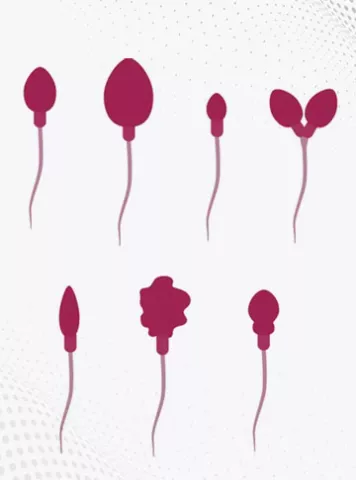

What is abnormalities in sperm?
Sperm is a crucial component of the reproductive system in males. It is a spec...
2023
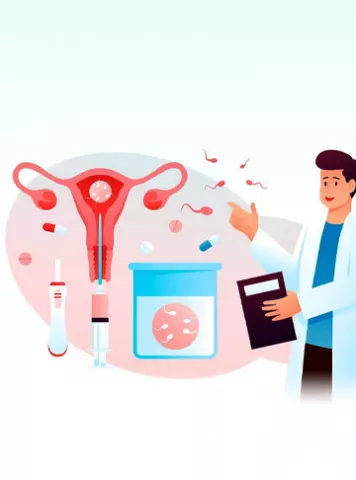

Female Infertility Male Infertility
How many days Sperm Live in Female Body after Intercourse?
While it depends on the correct circumstances and the stage of the woman's men...
2023
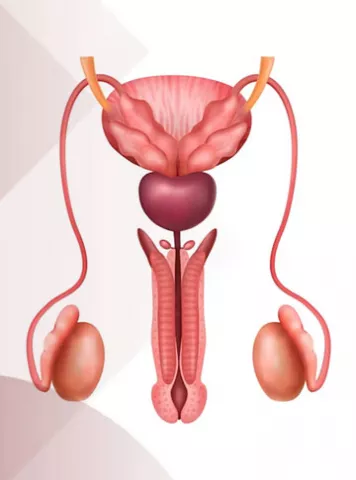

Testicular Atrophy
Do you feel at times that the size of your testicles has increased or decrease...
2023


Male Infertility Infertility Tips
Hyperspermia: Causes, Symptoms, Diagnosis & Treatment
What is Hyperspermia? Hyperspermia is a condition where an individual produ...
2022


पुरूष निःसंतानता का एक कारण वेरिकोसिल आधुनिक तकनीकों से संभव है पिता बनना
पुरूष निःसंतानता शब्द कुछ सा�...
2023
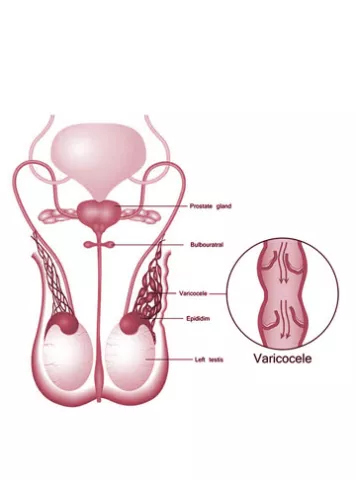

Male Infertility Guide to infertility treatments
Varicocele
What is Varicocele? Varicocele is a medical condition where the veins in th...
2022


Infertility Tips Male Infertility
Male Fertility Conditions
Sperm is also an important factor in conceiving a baby. Many people in India a...
2022


Infertility Tips Male Infertility
Male Infertility
MALE INFERTILITY – Overview If you are facing male infertility you are no...
2022


Infertility Tips Male Infertility
Male Infertility Causes
Male Infertility Causes – Introduction Infertility is defined as, when a ...
Tools to help you plan better
Get quick understanding of your fertility cycle and accordingly make a schedule to track it

